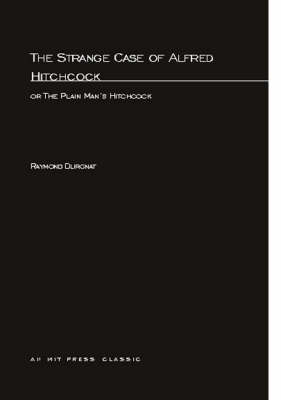MIT Press
2 total works
Reviewed in this book are all of Alfred Hitchcock's films, from The Pleasure Garden (1925) to Frenzy (1972).
Raymond Durgnat delineates the many facets of Alfred Hitchcock's prolific career and the controversies that these have aroused among the critics-critics who have seen Hitchcock as master of the aesthetic "touch" and who prefer his English to his American period, or those for whom Hitchcock is a dark Roman Catholic moralist.Durgnat's Hitchcock is a fascinating mixture of contrarieties. He tends to admire Hitchcock for his ability to tell a story and to control and manipulate order so that he can play his audience with suspence, for his "rare sense of how far dramatic conflicts can be complicated and in which ways," and for the conjuction or layering of elements in films like "Rear Window", "Vertigo", and "Psycho", which constitutes the real Hitchcock "touch."Durgnat reminds us that Hitchcock's ability to capture a feeling of everyday realism, particularly in the background and details of his early films, is something of a feat-"realism in the '30s was a rarer and more difficult achievement... the director couldn't just point a TV camera in the street, but first had to notice [these details], then to love them enough to remember and to re-create them and lastly to slide them deftly into a thriller context."

